Shortly before it is getting dark on Sunday, we arrive at the garden campsite near Osijek, Croatia’s fourth largest city in the far east. The friendly owner provides us with beer from his private fridge, as the only store is already closed. We share the space with Germans, Scots, English guys and three motorcyclists from Poland. It is nice to talk in a language that both sides understand again.
These will be the last tourists we meet for a while.
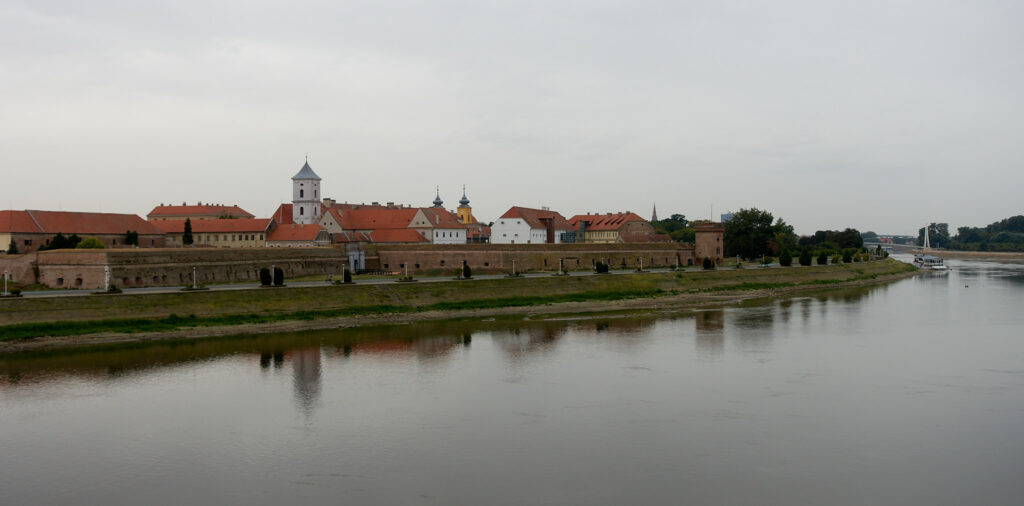
The first overcast day in months. It is drizzling lightly at 25 degrees. Cars, including many trucks, speed past us on the dead straight route. Most of it is marked as Eurovelo 6 – Danube Cycle Route. What a joke! The trail hardly ever walks along the Danube.
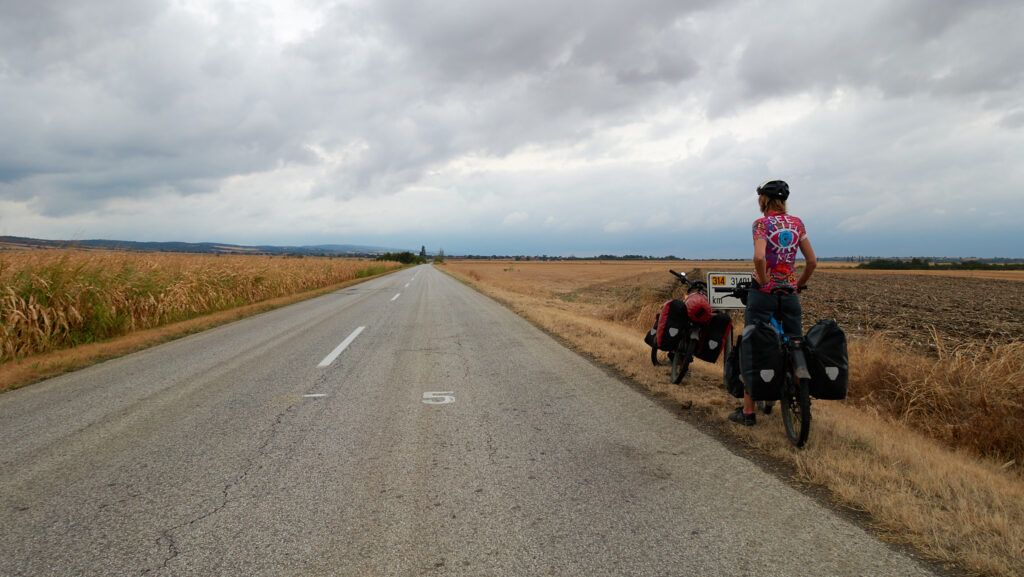
A break in Vukovar, less a city than a memorial to the hard-fought city in the Yugoslavian war from 1991 to 1995. Heavily destroyed and a ghost town on the border to Serbia for another ten years. We are slowly beginning to understand that Croatia is not just the touristy Mediterranean coast.
We are traveling again, which means – off the beaten track – discovering the country and its people!!!
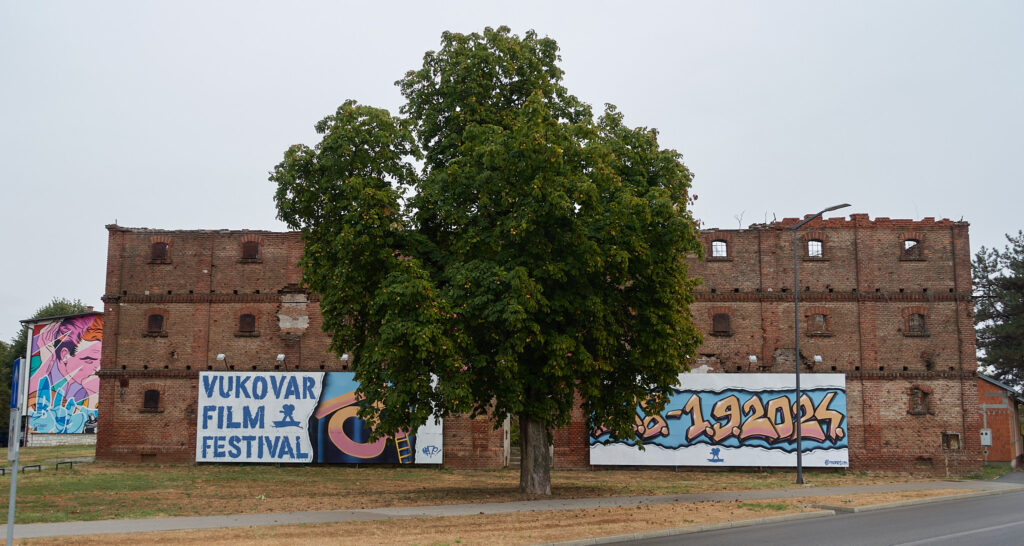
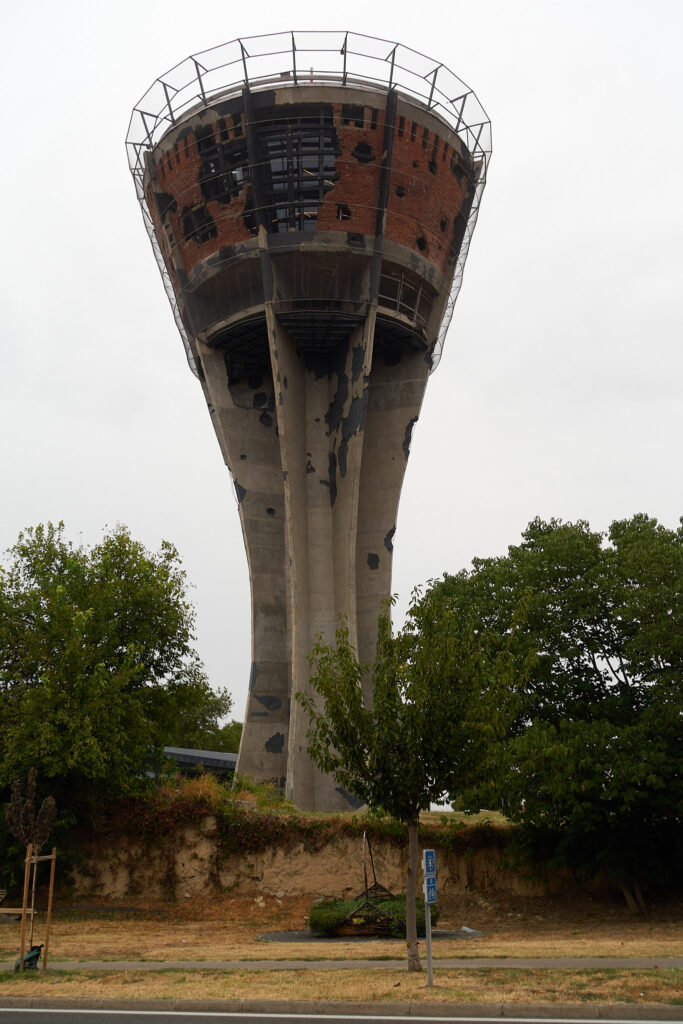
It is already getting dark when we reach the tiny village of Sarengrad which belongs to Croatia’s easternmost town of Ilok. We still have forty kilometers to cycle to our planned destination. By chance, we discover the ‘Kapetanova Kucha’ directly on the Danube. Romano and his two dogs, Dino and Tia, have a place here on the Danube and he invites us to stay. Dinka has opened her brother’s house and garden to travelers, canoeists and pilgrims. Overnight accommodation, hot shower, kitchen with stocked fridge and living room for free use. We could also sleep on the comfortable sofas. A small supermarket is fifty meters away.
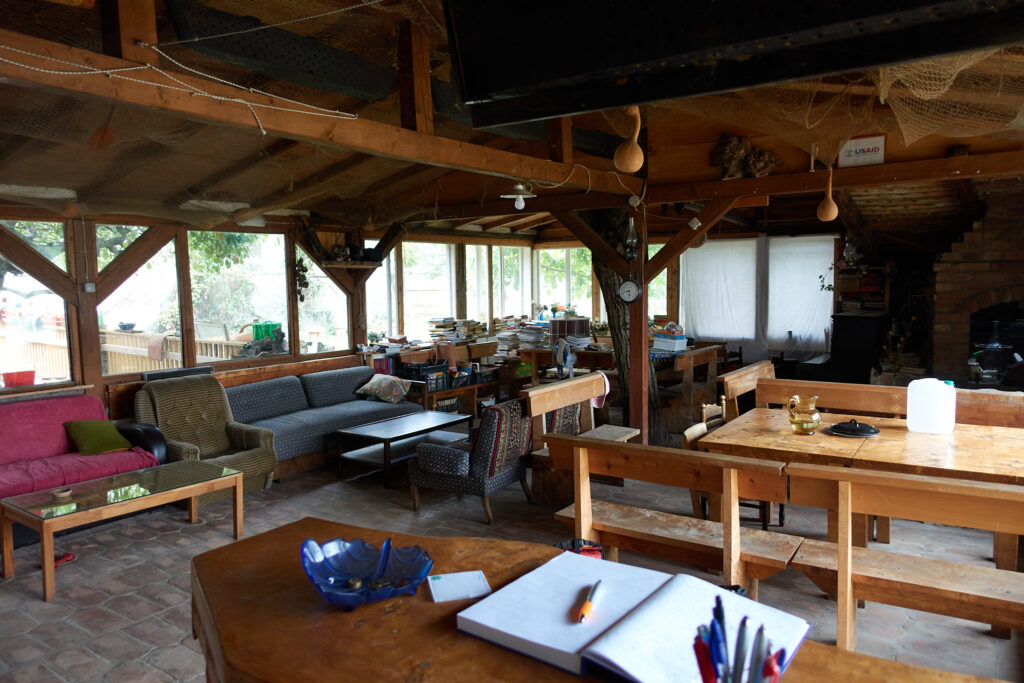
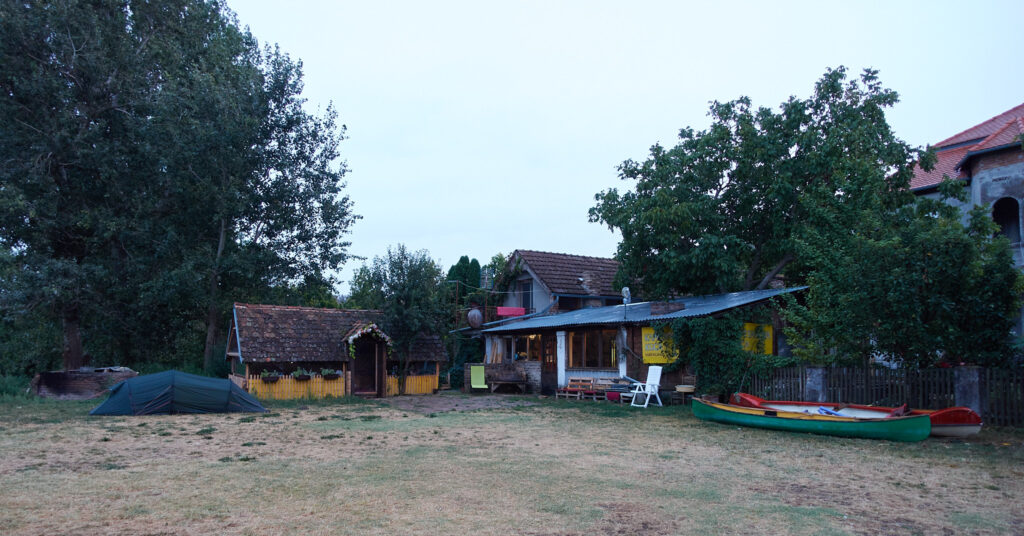
It is incredible that something like this still exists in the western world. Dinka’s guest book tells us about the people who stayed here. Some for one night, some for several days. Two are still here. 🙂
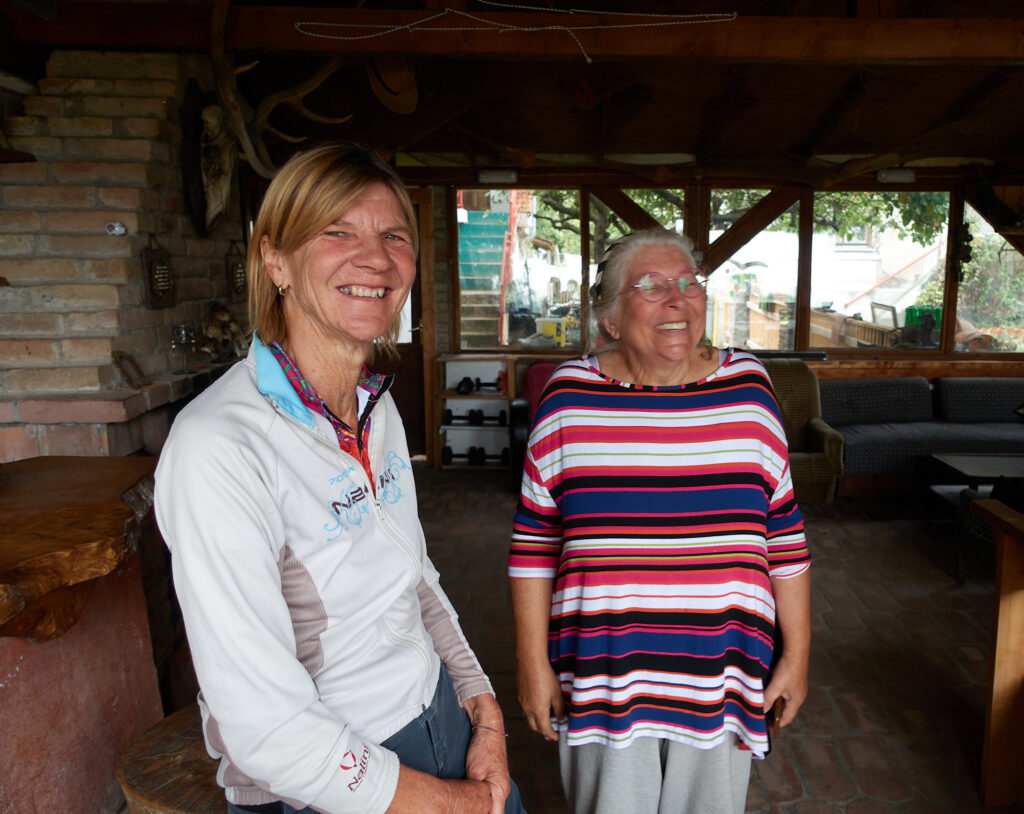
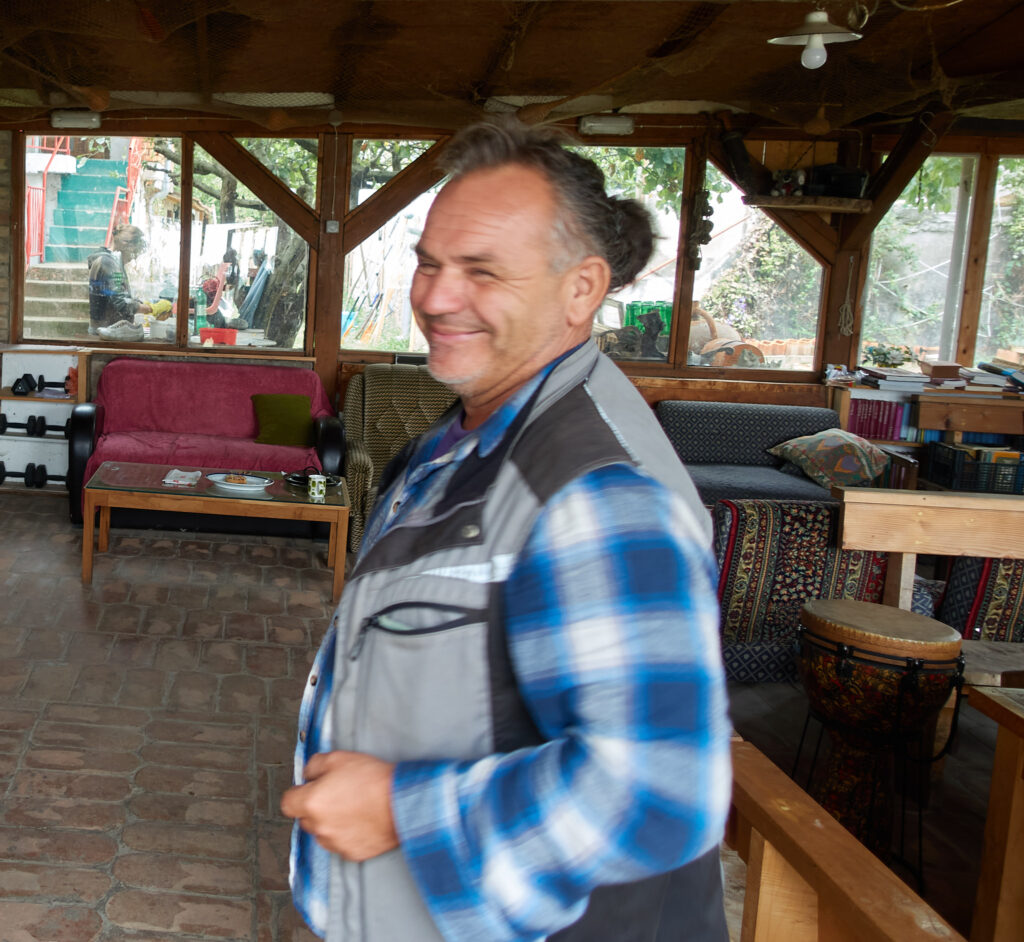
He quickly planned the route to Greece for us.
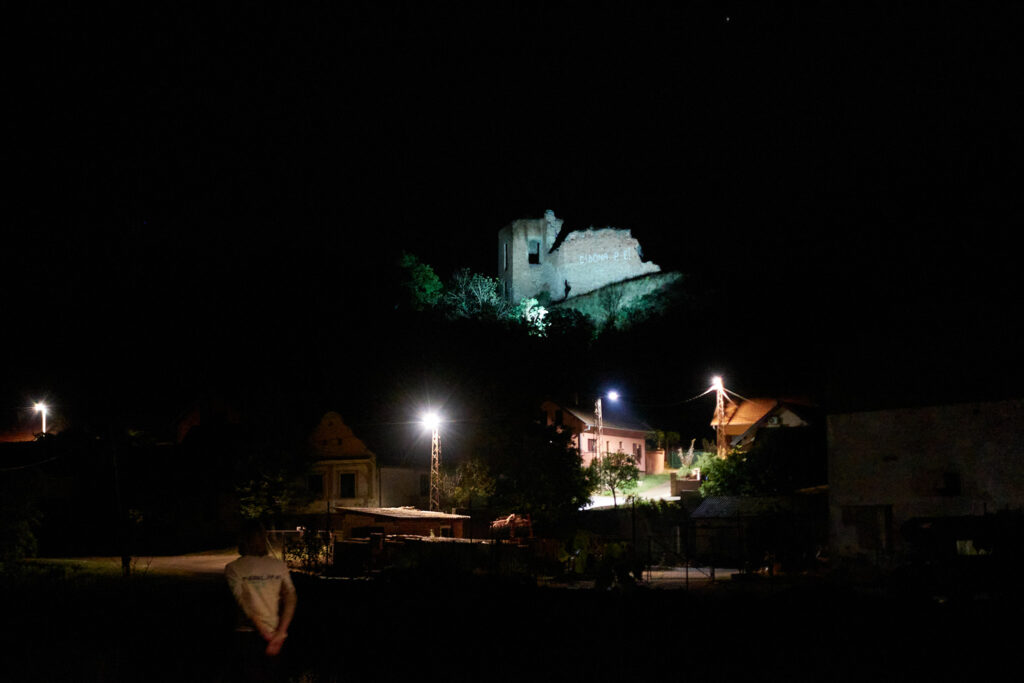
Now it is off to Serbia. The landlocked country has also been the ‘sole legal successor’ to Yugoslavia since the final collapse of Yugoslavia in 2006.
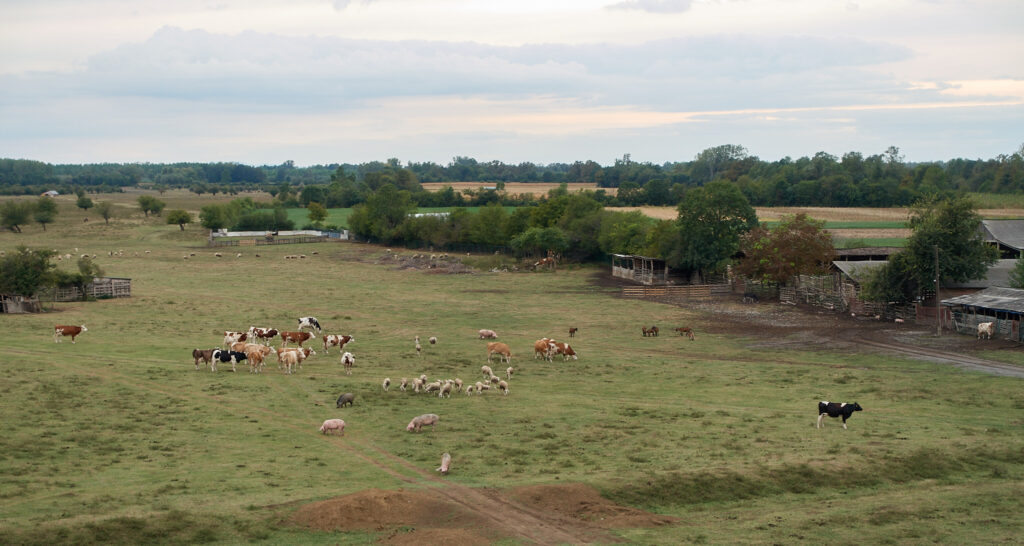
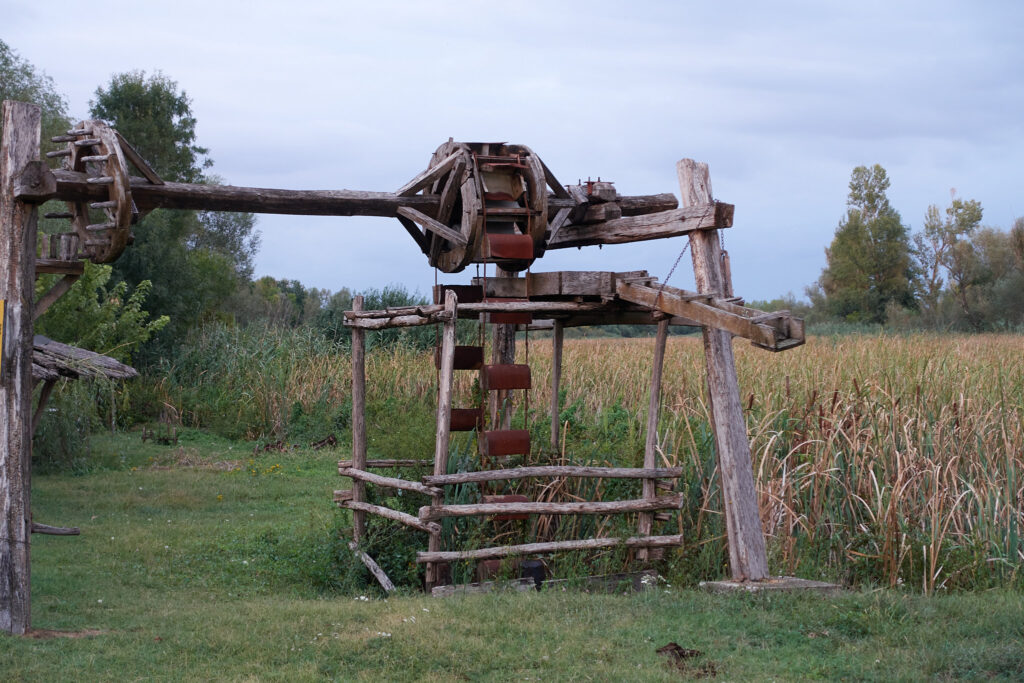
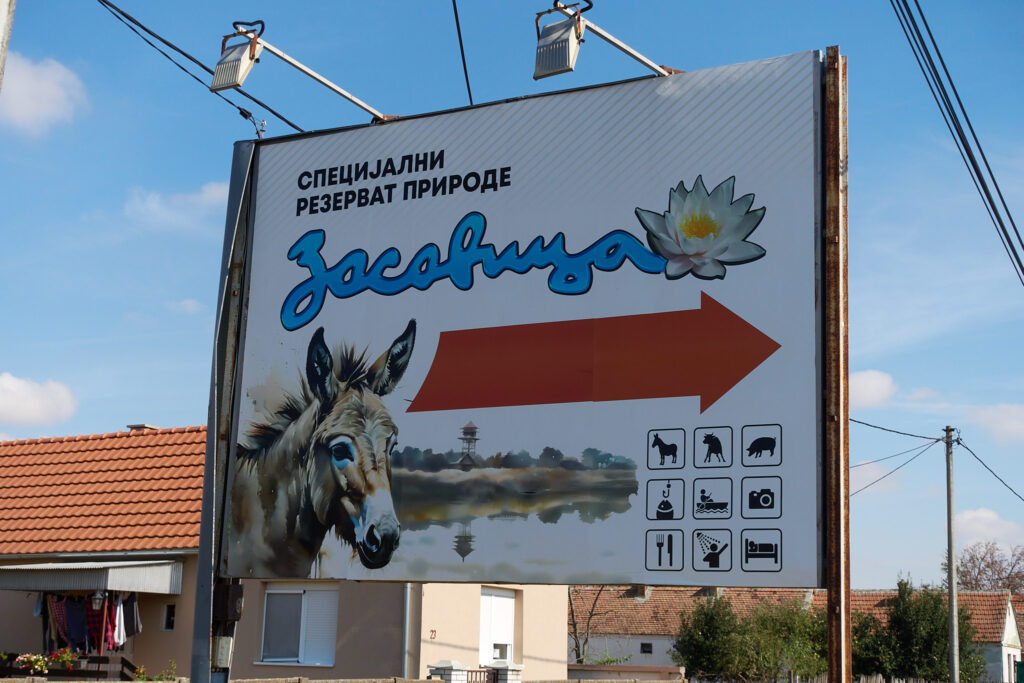
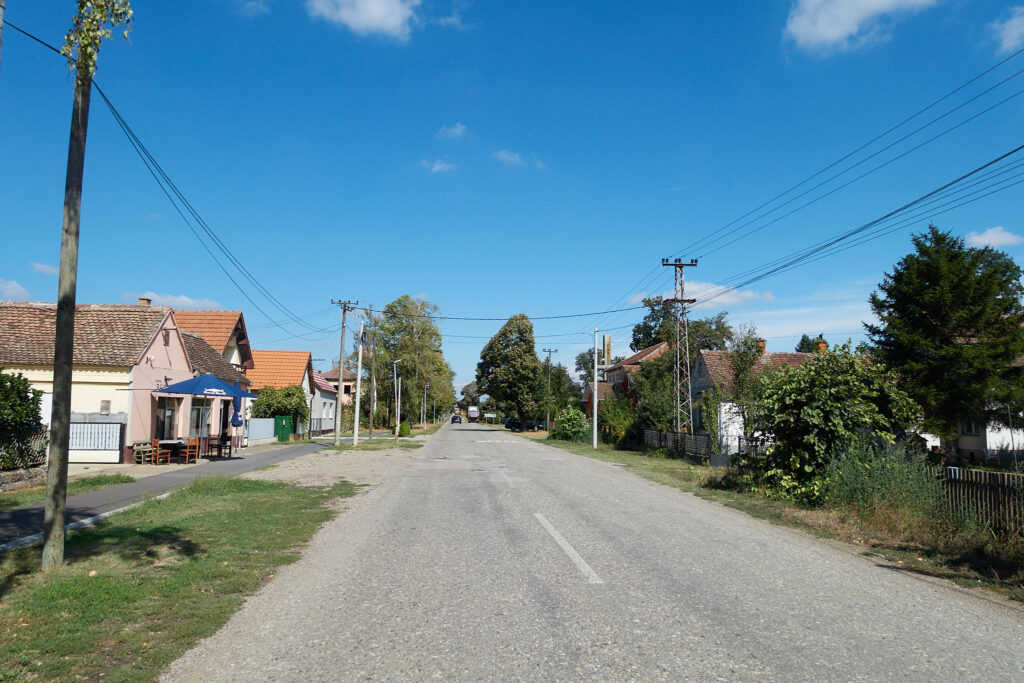
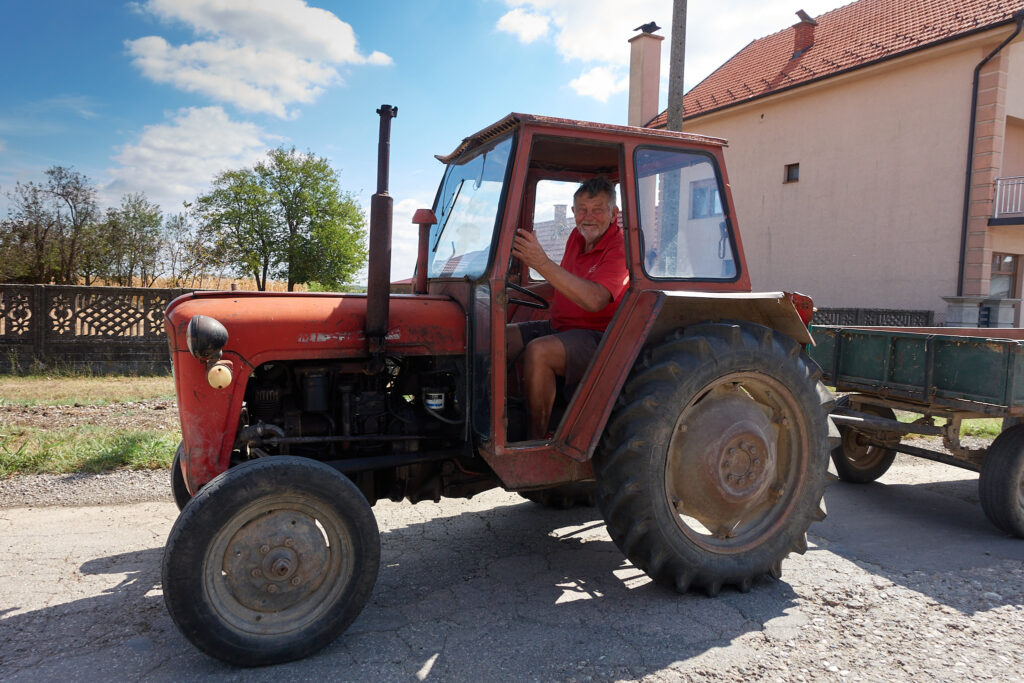
We continue on to Bosnia-Herzogovina. A chat with the beverage market owner. The Bosnian’s grandparents lived in Germany and so people sometimes speak a few words of German, sometimes more. They are happy to meet us.
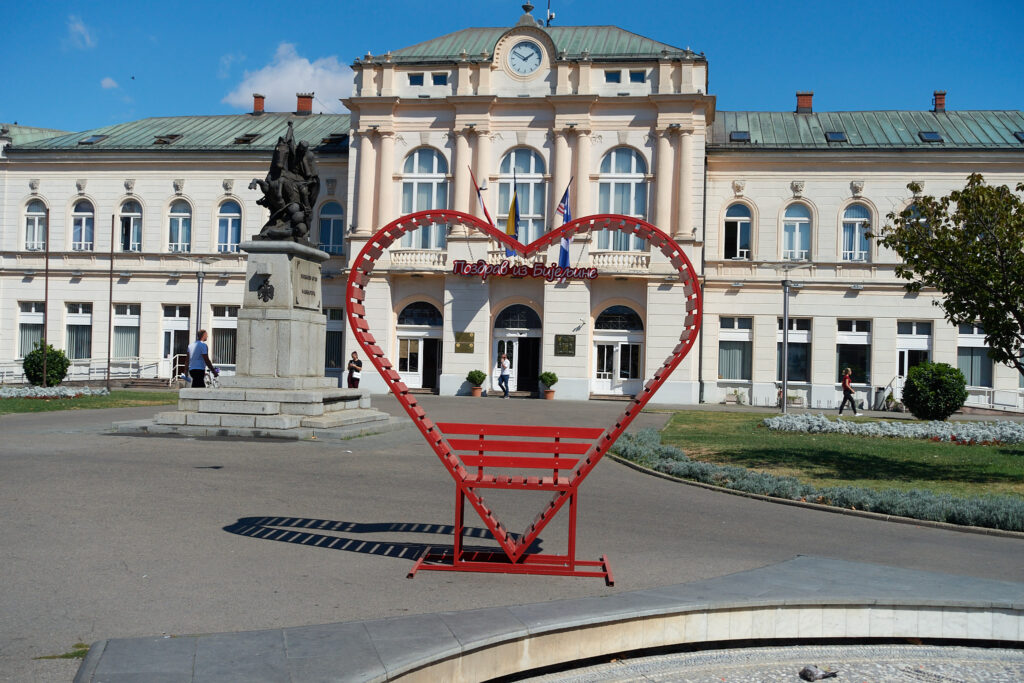
We have booked an apartment in Brcko, a town of 80,000 inhabitants. Wonderful! On the 8th floor with the best view from the conservatory and air conditioning. Hostess Zorica shows us around. The first challenge is getting our belongings up the narrow elevators. The bikes only go up the stairs. The shower has to be earned. Now we are lying on the bed and the effort is forgotten – until next time!
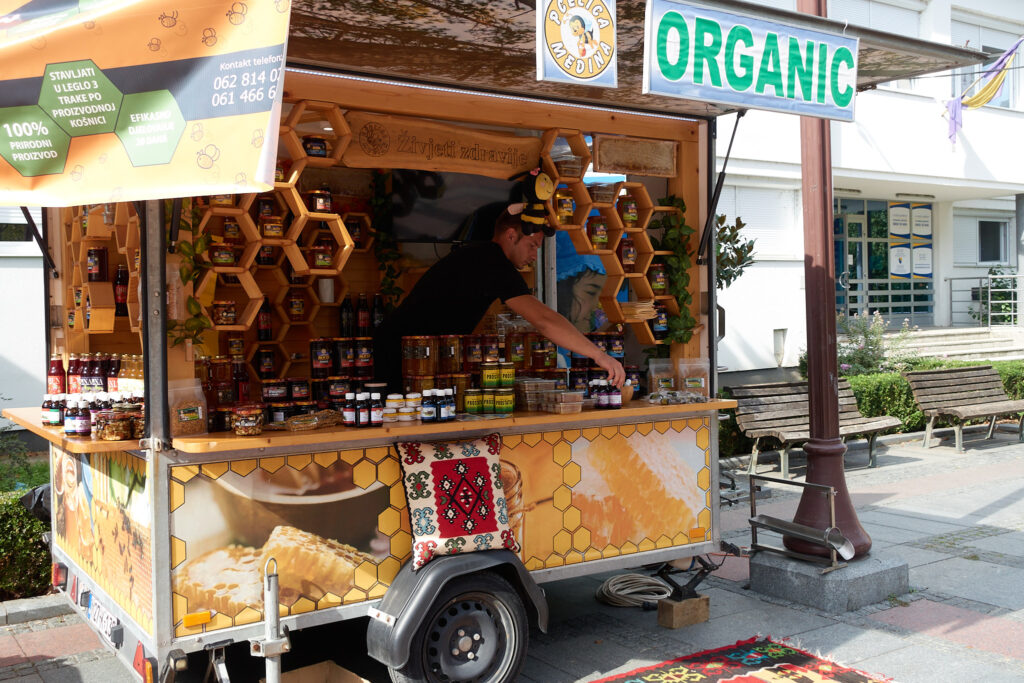
We get an idea of the complexity of the Balkans: multi-ethnic and multi-religious coexistence of Catholic Croats, Orthodox Serbs, Jews and Muslims, apart from the political borders of Croatia, Bosnia and its entities Republika Srpska, District Brcko and Serbia.
We cycle through small villages towards the southwest. It is corn harvest time and potatoes are being picked. We stop off at a bar. The guests invite us for a Coke.
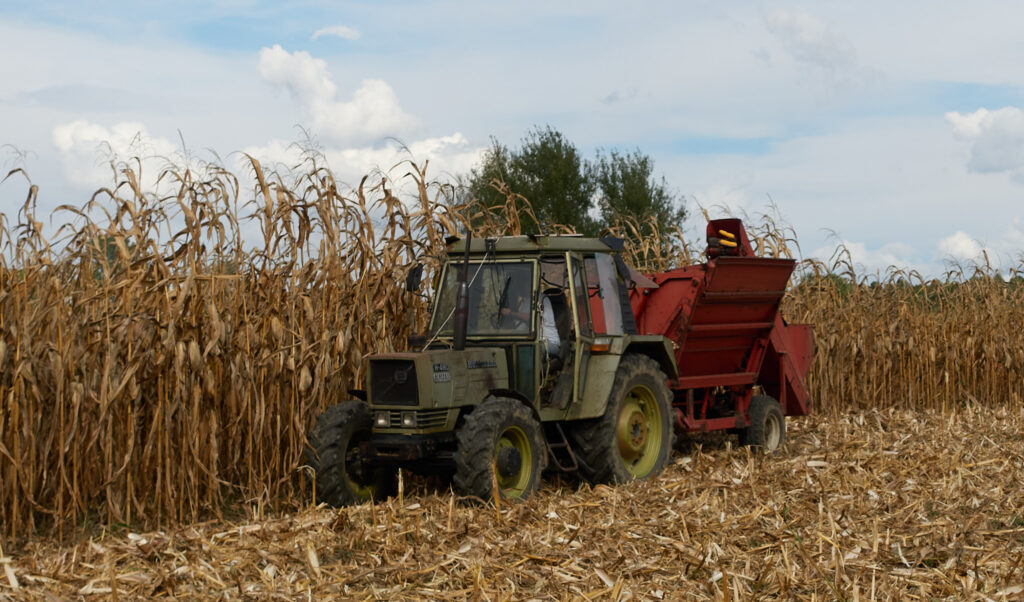
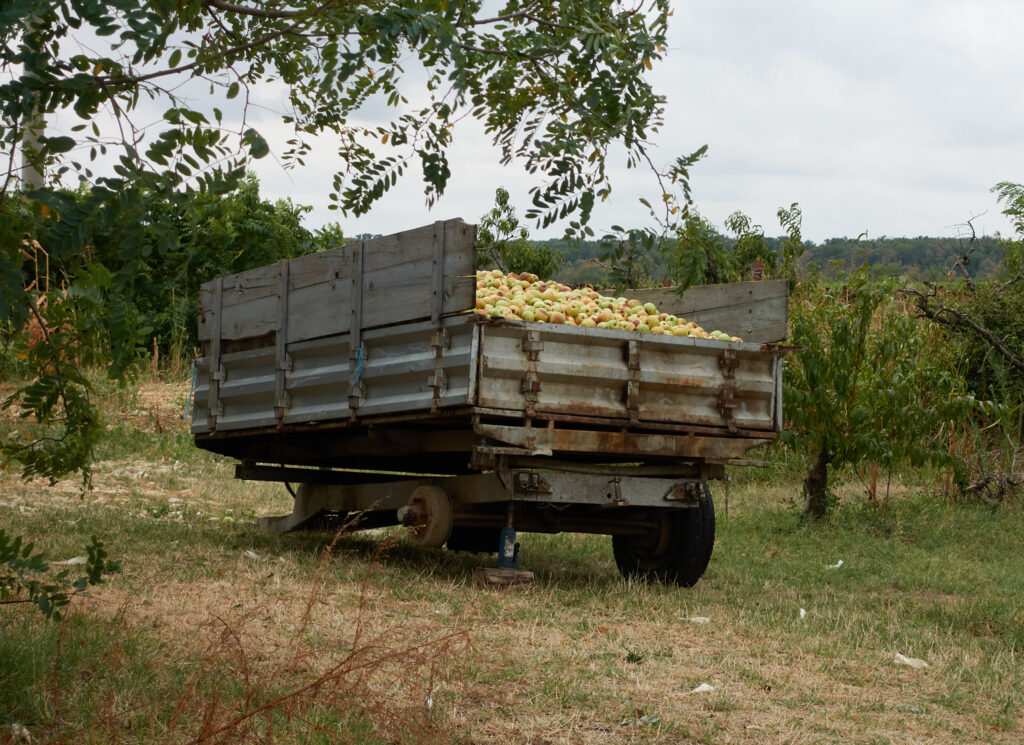
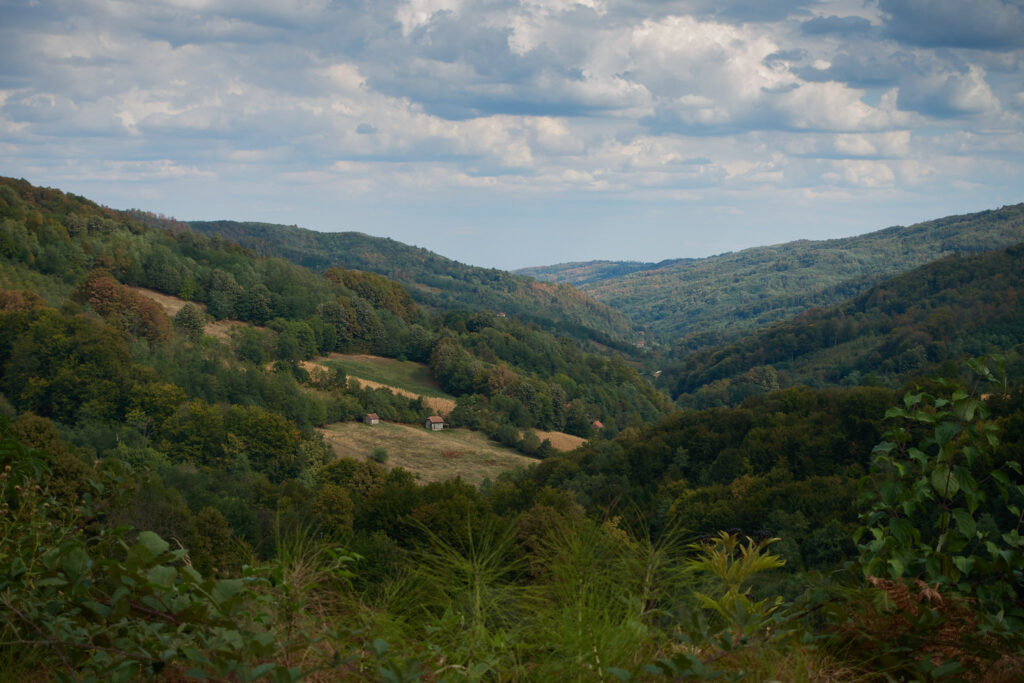
We pull into a campsite near Doboj. Srdjan, Serbian, born here(!), welcomes us with a cold beer. We sit down and chat as if we have known each other for a long time. Srdjan has lived and worked in Switzerland for years and speaks good German, so we talk with him about all kinds of topics and occasionally he makes a funny remark.
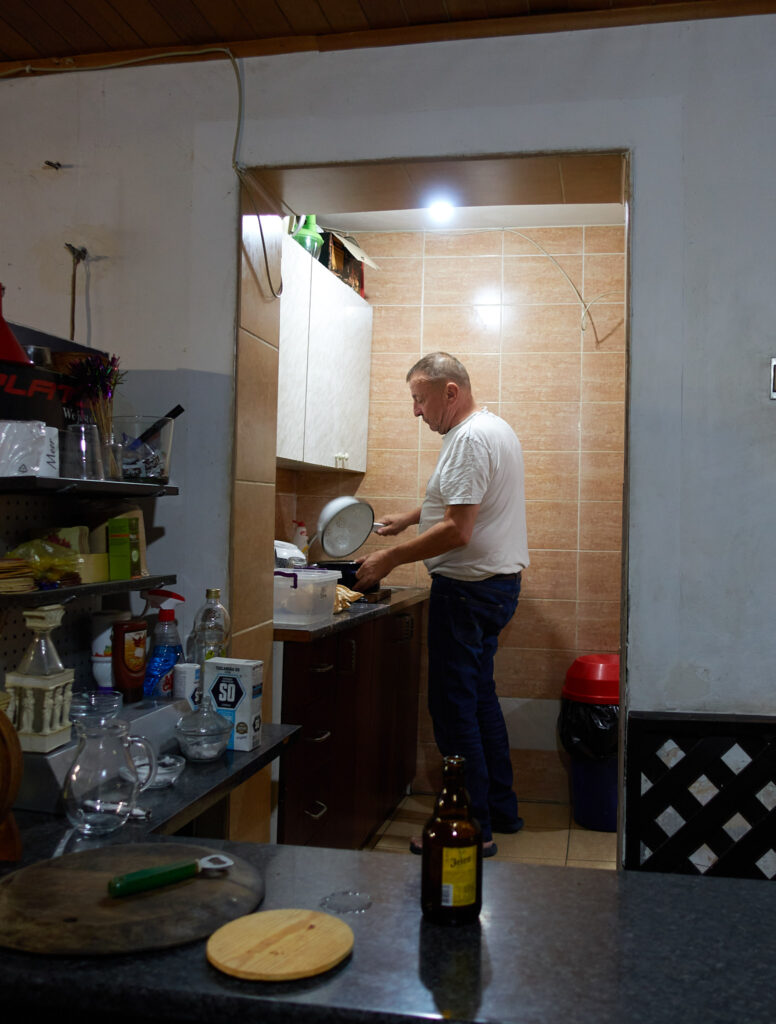
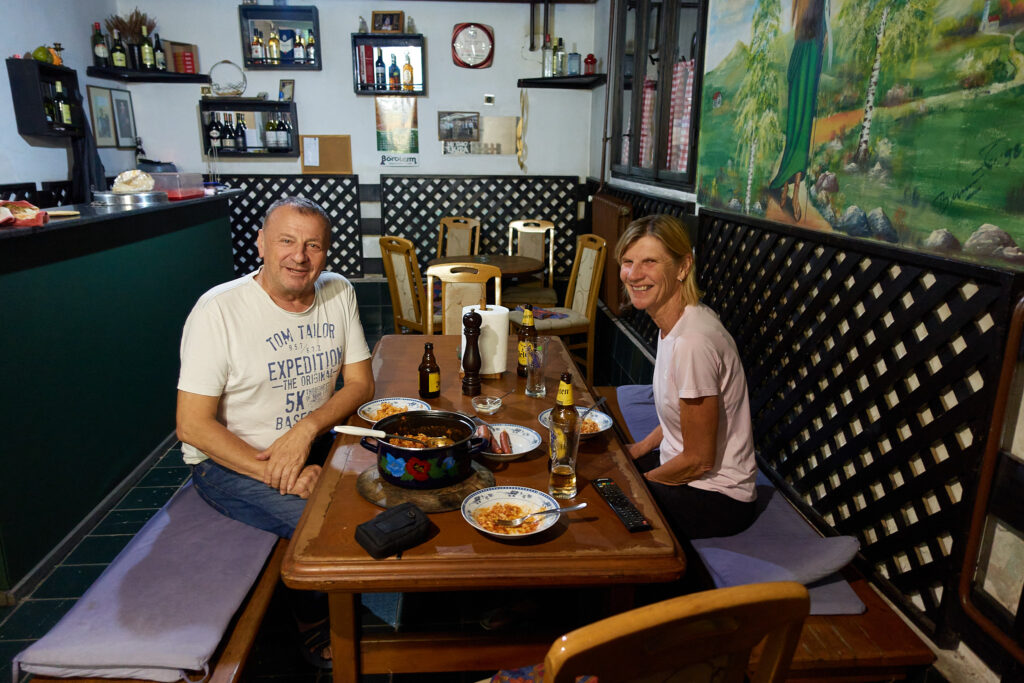
This morning he is taking the bus to Switzerland to visit his grandchildren. It is 9 degrees celsius and raining. In the meantime, he wants us to stay in his house and wait for better weather – so we do. His dog Bobby and his neighbor Branka make sure we are okay.
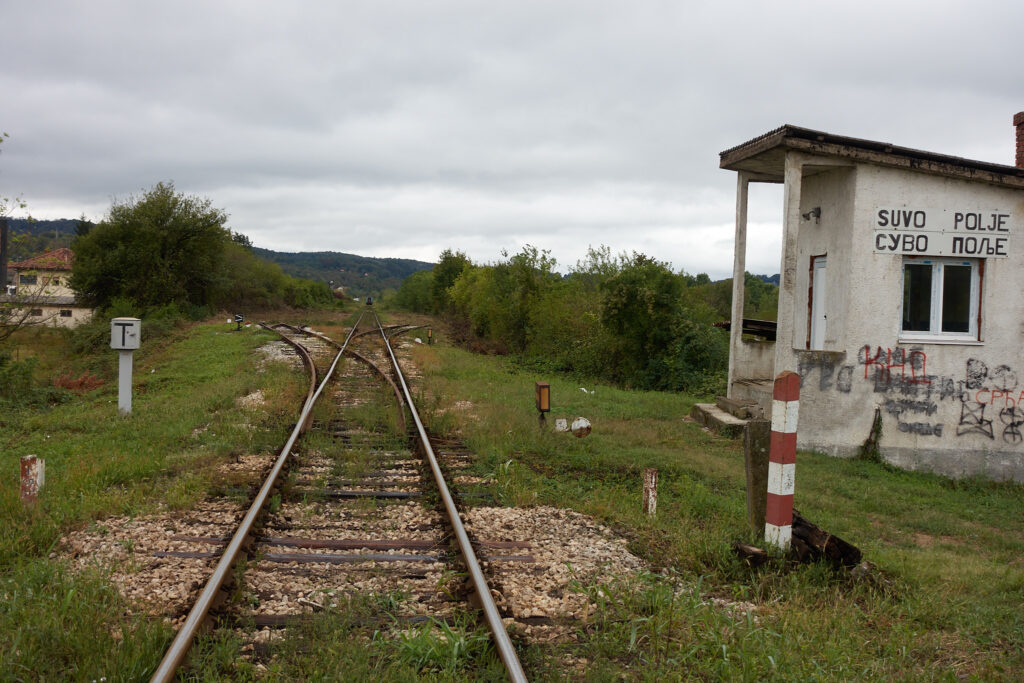
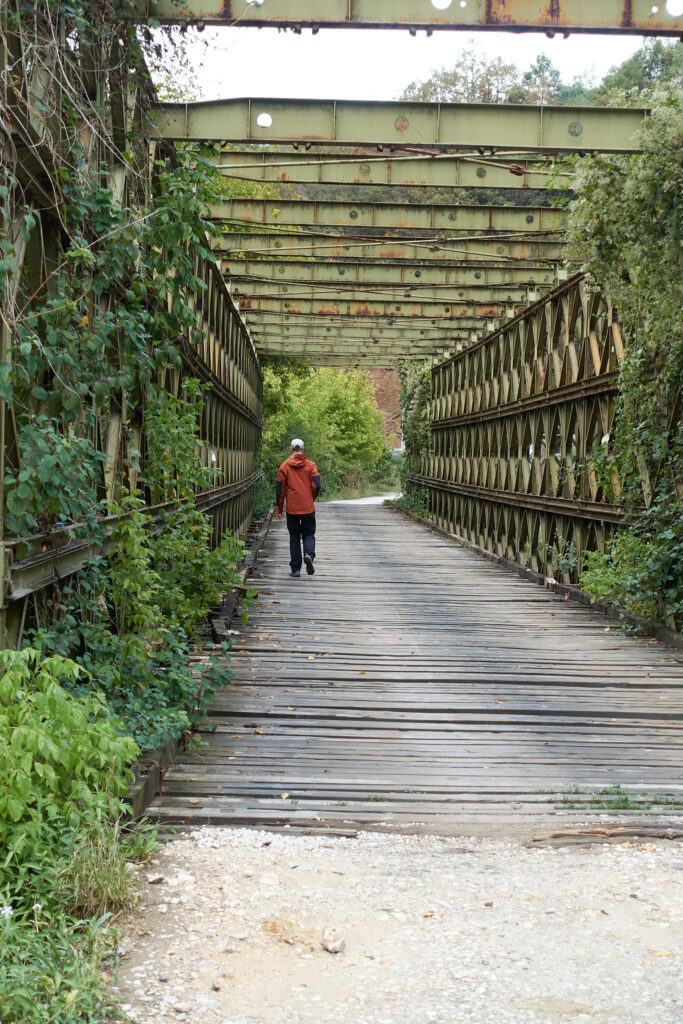
The Balkans are authentic, warm, wild, varied, exciting and beautiful!
By the way, for anyone who has lost the thread, you can find our itinerary to Serbia here https://rapl-kiste.de/wp/maps/
